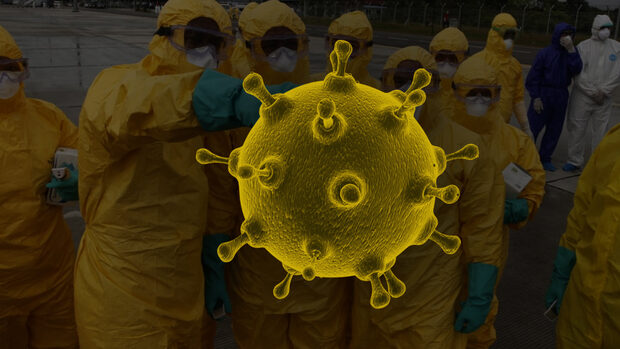
Counselors will be able to answer questions about corona in 25 different languages.
Since the corona crisis hit Denmark, experts and resident chairmen from exposed residential areas have criticized that there has not been enough translation of corona information and news into other languages.
In Gellerupparken, people were so much feared for lack of knowledge among the residents that they started their own corps of translators, who via WhatsApp and Facebook translated news in Somali and Turkish.
There is the same fear in Mjølnerparken, where resident chairman Mohammed Aslam missed the help of the authorities.
But now, help comes from the other side, if you do not understand Danish.
The Danish Refugee Council today creates a hotline, where it is possible to get advice and answers to questions about the corona virus in 25 languages.
One of the advisers on the new corona hotline is Keyhaneh Asgari.
Armed with her computer and phone, she sits in her apartment in Glostrup and is ready to answer calls or chat with those who need help in either Farsi (Persian) or Dari (Afghan).
She has experienced that there have been many in her network who had unanswered questions.
Getting the right information can be confusing and difficult. She may not understand everything that is said on TV if you are not good at Danish, she says and continues:
I work with refugees on a daily basis and there has been a sea of questions, confusion and concern about the current situation. Therefore, it is important that you can get help in your own language.
The authorities help with information
Although it is not the authorities behind the hotline, the advice is done in collaboration with relevant actors.
The Danish Refugee Council states that the information provided by the interpreters is closely coordinated with the National Board of Health, the National Police and the Ministry of Integration.
In addition, the advisors who are ready at the phones and on the chat have the opportunity to communicate with the National Board of Health’s doctors, says General Secretary of the Danish Refugee Council Charlotte Slente.
Counselor Keyhaneh Asgari has also been preparing.
I do not have a health professional background, but I have read well the information available on the website of the National Board of Health. I’m as well dressed as you can be, says Keyhaneh Asgari.
Mjølnerparken: Important efforts
Since the resident chairman of the Mjølnerparken Mohammed Aslam told about his criticism of the DR, the Ministry of Housing and the Ministry of Immigration and Immigration has said that they would translate more material and important information and make sure it reaches the residential areas.
Now he is happy that more help is coming.
We of course welcome the new hotline. It will be exciting to see how it will be used and how it will be communicated to the relevant citizens that the opportunity is there, says resident chairman Mohammed Aslam.
He says he wants to help spread the message about the new hotline among the residents of Mjølnerparken.
Another who has criticized the authorities’ failure to communicate about corona in other languages is Flemming Konradsen, a professor of Global Health at the University of Copenhagen.
He thinks the hotline is a really good initiative that can solve the challenge.
But like Mohammed Aslam, he points out that the target audience can be difficult to reach.
Of course, it’s a matter of making sure people become aware that that service is now there. Danish Refugee Council is well equipped, but it requires them to go out and make further partnerships, says Flemming Konradsen.
At the Danish Refugee Council you are sure that you will probably get hold of the relevant citizens.
We are an organization that has worked with immigrants and refugees in Denmark for many years. Therefore, we have a close contact with the immigrant communities and therefore also know which channels we need to reach the target group, says Charlotte Slente, secretary general of the Danish Refugee Council.
Source: www.dr.dk


